SALIF KEITA : THE GOLDEN VOICE OF AFRICA
Salif Keita, popularly known as the Golden Voice of Africa, is majorly known for his music - a symphony of traditional Mandé music with jazz, blues, and Western music styles. He recently made headlines for being appointed as a special adviser on cultural affairs to coup leader Col Assimi Goïta of Bamako, Mali. But who exactly is Salif Keiter?
EARLY LIFE
Unknown to many, Salif was born a prince to the Keita royal family, who trace their lineage to Sundiata Keita, founder of the Mali Empire. However, he did not get to experience the royalty life as he was discriminated against by his family and society at large due to albinism. They believed that Albinism was a bad omen. Coming from a noble family, pursuing a music career was considered an out-of-step career path. As a result, he left Djoliba, his hometown, for Bamako, aged 18, to pursue his music career. Keita's dream as a child was to be a teacher but he was denied the opportunity and told that he would scare children.
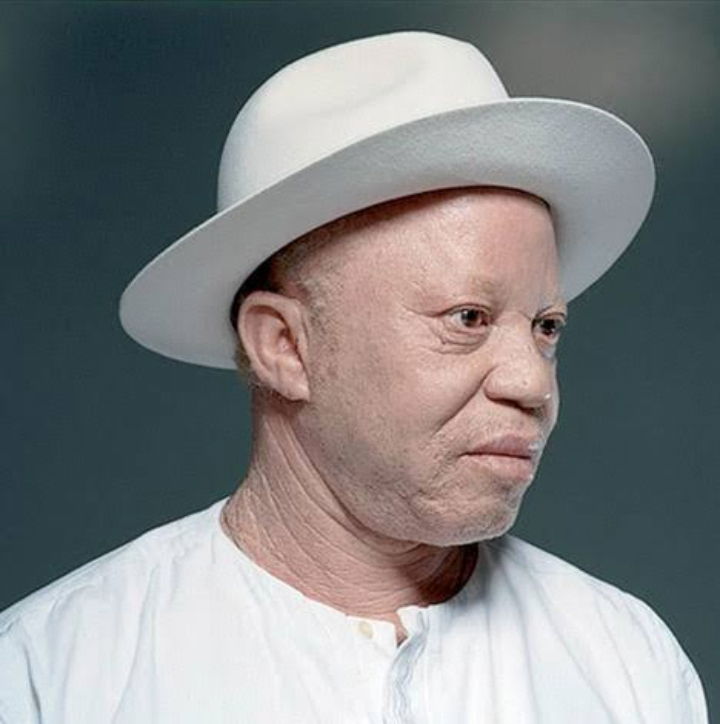
MUSIC CAREER
Salif Keita is one of the trailblazers of a generation that put African music on the global map. After leaving home, he joined “Super Rail Band de Bamako”, a state-sponsored band. Thereafter, he proceeded to another band, Les Ambassadeurs (du motel de Bamako) where he furthered his music career. In the mid 1970’s, when there was political unrest in Mali, the band opted to flee the country for Abidjan, Ivory Coast where they struggled financially and often had to rent equipment to perform shows. It was in the Ivory Coast that they changed their band name to “Les Ambassadeurs Internationaux” as they were now outside their motherland.
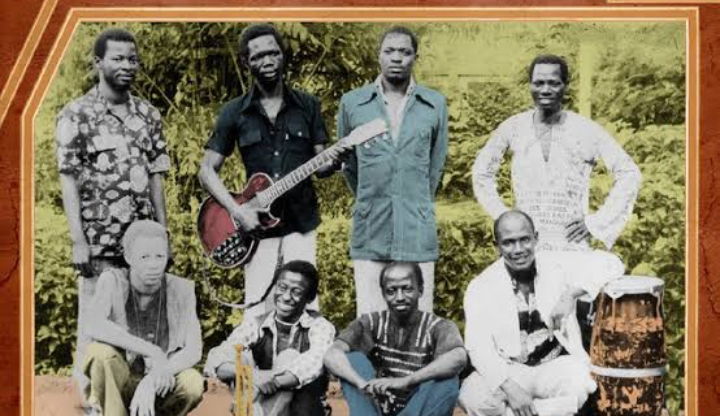
Gradually, they grew and became a household name. “Mandjou”, their 1978 album, spiraled them to overnight success in West Africa and began to put them on the global map. Keita then decided to pursue his solo music career. He moved to Paris in 1984 with the aim of reaching an even larger audience. He improved his music by mixing his traditional symphony with some European music styles. “Soro” became his international breakthrough album in 1987. He eventually found success in Europe but his work was sometimes criticized for the occasional “chaotic” quality.

In 2000, he returned to Bamako, Mali for good, and continued to make music. His first piece of work after going back home was “Moffou” released in 2000. It was hailed as his best album by then and was inspired to build a recording studio in Bamako, which he used for his album M’Bemba, released in October 2005.
After 50 years of success in the music industry, in November 2018, he announced his retirement from music at a concert in Fana, Mali after releasing his new and last album “Un Autre Blanc”
FAMILY
Salif Keita is married to Coumba Makalou Keita. He is a father to Nantenin Keita, a world Paralympics champion, Sidyki Keita, and Nahhila Yeelene Keita.
KEITA AND ALBINISM ACTIVISM
- In 2005, the musician set up the Salif Keïta Global Foundation to raise awareness about albinism and speak out against the perception in some African countries that albinism is an ill omen. Keïta raised funds from his concerts and donated proceeds from his record sales to his foundation to help with medical assistance of people with albinism.
- In 2009 he released the album “La Difference” which he solely dedicated to Albinism advocacy and awareness. The legend recorded the song "La Difference" specifically to help individuals with albinism in Mali, who suffer from discrimination and injustice. The song has beautiful lyrics, the perpetual ones being” I am black, my skin is white, and I like that, it’s the difference that’s pretty.” “My blood is black, and I love it, I would like that we understand each other in love, May we understand each other in love and peace."
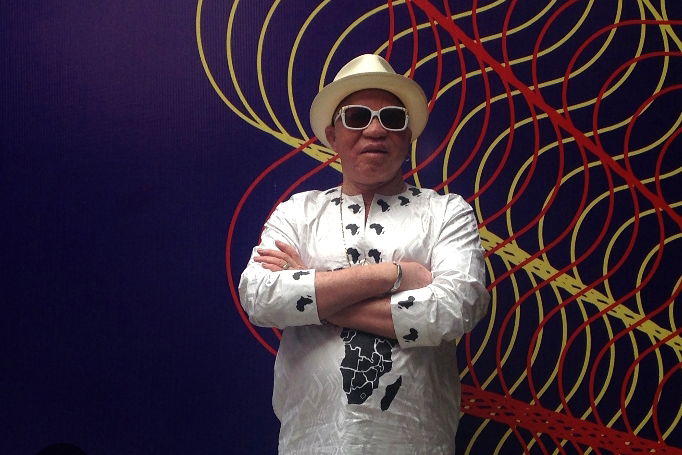
SALIF’S KEY ACHIEVEMENTS
- Although he never won any, he was nominated four times for the Grammy Awards.
- In 1976, he was made an Officer of Guinea's National Order of Merit by the then President Ahmed Sekou Toure who was a great fanatic of Keita’s music with the band “Les Ambassadeurs Internationaux”. He reciprocated the honour by composing and producing a praise song “Mandjou” for the Gabon president. However, by the time the song was making hits, Toure had turned into an authoritarian ruler. Keita still performs repositioned versions of the song.
- He performed at the Nelson Mandela 70th birthday tribute concert in 1988 to call for Nelson Mandela's release from prison.
- In 2001, Keita's song "Tomorrow" was featured in the Will Smith film, “Ali.”
- His album “La Difference” won Keita one of the biggest musical awards of his career: The Est World Music 2010 at the Victoires de la Musique.
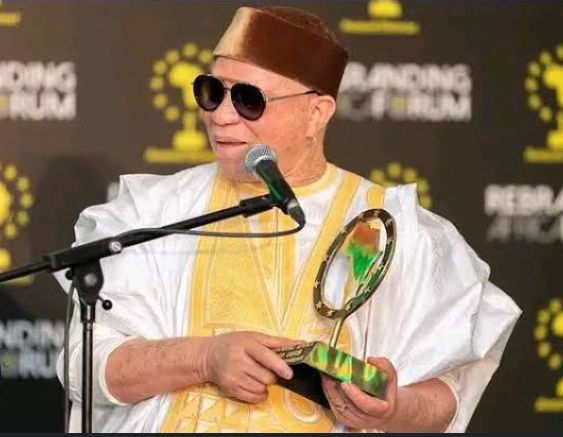
KEITA AND POLITICS
- He first entered the political scene in 2020 when he was appointed a legislative in the Malian government. He served in the interim parliament - the National Transitional Council (NTC) - set up in December 2020 by the coup leaders as part of what they called a transition to civilian rule.
- After stepping down on 31st July early this year for what he termed as purely personal reasons, Keïta again reentered the political scene early August this year by being appointed special adviser on cultural affairs to coup leader Col Assimi Goïta of Bamako, Mali.
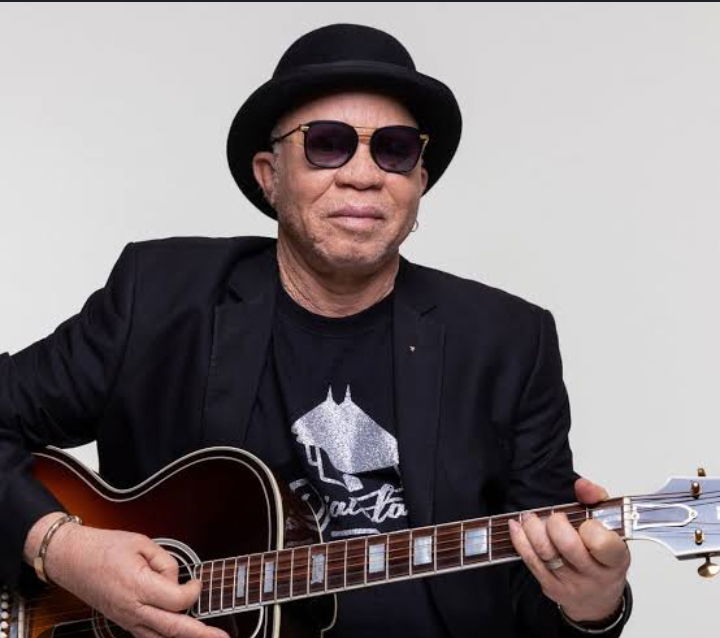
As the world celebrates Salif Keiter as a legendary music icon, we hail him more for choosing to use his influential voice to speak against discrimination, exclusion, and infringement of the rights of People With Albinism.